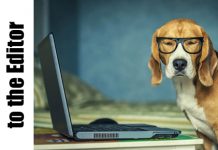I first heard about COVID-19 in early February. I heard that it mostly affects older people (over 70), children (under 18) and people with health problems such as asthma and cancer.
Because there is a limit to how many people can gather in a space at one time, my peers and I haven’t had a chance to meet as a group for South Bay Youth 4 Change. This sets us back in terms of attending public events and raising awareness in the community on a more personal level.
Going to school was a major outlet for many kids my age and now we are required to stay sheltered at home with little to no public interaction. For some, this might increase their level of boredom and unproductivity. Sadly, for others, this could potentially mean more exposure to domestic abuse and/or substance misuse.
We are learning more and more about the Coronavirus each day. Because COVID-19 attacks the lungs, people with a history of heavy alcohol, marijuana, or vape use are especially sensitive to the virus. These types of people need to take special precaution as hospitals have filled up quickly, making treatment inaccessible.
Patients recovering from drug/alcohol issues or people seeking help are now forced to grapple with their issues alone because support networks might be shutting down or transitioning to online services.
COVID-19 could have a hand in spurring increased substance misuse since young people are not physically attending school and not needed for jobs and internships. Along with several organizations across the region, South Bay Youth 4 Change meetings were cancelled these past few weeks and will stay cancelled for as long as necessary.
This means students like me won’t have weekly check-ins for mental health, physical health, recent living changes and more. Being away from school, extracurriculars and friends means students are turning to alternative outlets. Whether it’s working productively or drinking while underaged, this is a time when people are developing strong habits that can carry on throughout their life.
In the beginning, we knew it was only affecting people in China and South Korea, but it quickly started spreading to other parts of the world because of travel. My high school was not too precautious in the beginning but eventually they put up posters educating students on how the virus spreads and why it’s important to consistently wash your hands.
My parents are still going to work now, but it’s uncertain if they will still be going in a couple weeks. My mom is training to become a nurse and she works with chemotherapy patients, but they are very susceptible to the virus so she might need to take a break from work for their safety.
My dad works at a juvenile detention center and all the staff has to be careful they don’t carry the virus into the building. The virus could easily spread since the children live in very close quarters to each other all day.
With all this extra time, I’ve been able to relax and exercise by going running and hiking around my house. Since school is cancelled as well as all my extracurriculars, I don’t have much to do. For the first week, I have enough homework and things to keep me temporarily occupied but I feel like it will become repetitive if quarantine continues after spring break.
This whole pandemic has put into perspective how difficult it is for low income people to survive in the U.S. as opposed to other countries. It seems as if the more money you have, the easier it is to get treatment or even testing for the virus.
COVID-19 has affected public health in the South Bay as a whole because it is a community in which lots of families don’t have access to health care and have experienced food insecurity even before the coronavirus became a pandemic. The South Bay is still progressing as a community and COVID-19 will negatively impact it during this time.
It’s important for community members and city officials to know that public health is the foundation of a thriving community. It’s the basis in which families can survive and be understood by the general public. We need to study the patterns in history when pandemics took place and learn how they could have been prevented.
Parisa Vega resides in Chula Vista.











